Related Research Articles
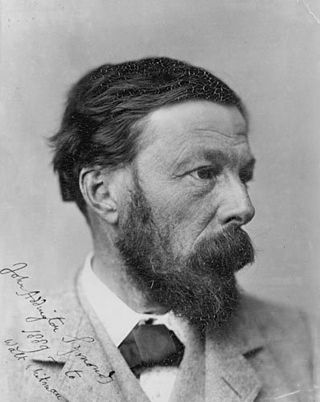
John Addington Symonds Jr. was an English poet and literary critic. A cultural historian, he was known for his work on the Renaissance, as well as numerous biographies of writers and artists. Although married with children, Symonds supported male love (homosexuality), which he believed could include pederastic as well as egalitarian relationships, referring to it as l'amour de l'impossible. He also wrote much poetry inspired by his same-sex affairs.

Charles John Vaughan was an English scholar and Anglican churchman.
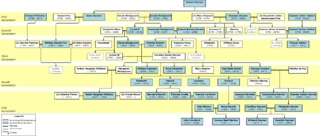
The Darwin–Wedgwood family are members of two connected families, each noted for particular prominent 18th-century figures: Erasmus Darwin, a physician and natural philosopher, and Josiah Wedgwood FRS, a noted potter and founder of the eponymous Josiah Wedgwood & Sons pottery company. The Darwin and Wedgwood families were on friendly terms for much of their history and members intermarried, notably Charles Darwin, who married Emma Wedgwood.

Giggleswick School is a public school in Giggleswick, near Settle, North Yorkshire, England.
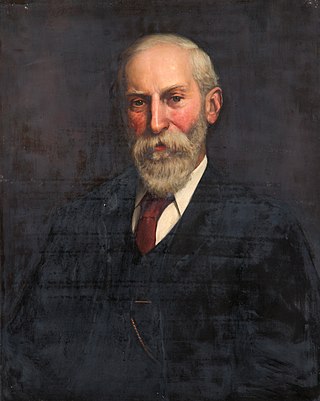
Edward Lyulph Stanley, 4th Baron Sheffield, 4th Baron Stanley of Alderley and 3rd Baron Eddisbury PC was an English peer.

Sir Edward Bagnall Poulton, FRS HFRSE FLS was a British evolutionary biologist, a lifelong advocate of natural selection through a period in which many scientists such as Reginald Punnett doubted its importance. He invented the term sympatric for evolution of species in the same place, and in his book The Colours of Animals (1890) was the first to recognise frequency-dependent selection. He is remembered for his pioneering work on animal coloration and camouflage, and in particular for inventing the term aposematism for warning coloration. He became Hope Professor of Zoology at the University of Oxford in 1893.

William Hobson Mills FRS was a British organic chemist.
There have been three Agnew baronetcies. The first was created in the Baronetage of Nova Scotia. The second and third were created in the Baronetage of the United Kingdom.

Cyril Argentine Alington was an English educationalist, scholar, cleric, and author. He was successively the headmaster of Shrewsbury School and Eton College. He also served as chaplain to King George V and as Dean of Durham.
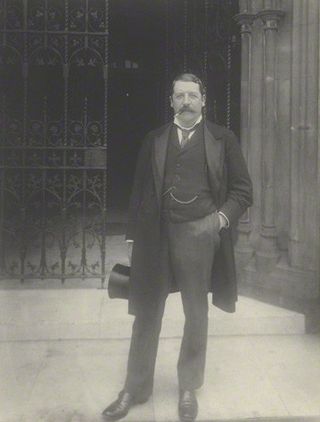
Colonel Evan Henry Llewellyn JP DL was a British Army officer and a Conservative politician who sat in the House of Commons between 1885 and 1906.

Edward Humphrey Dalrymple Sewell was a first-class cricketer, popular cricket and rugby journalist and author, known universally as E. H. D. Sewell.

Sir Alfred Hamilton Grant, 12th Baronet, known as Hamilton Grant, and from 1918 as Sir Hamilton Grant, was a British diplomat who served primarily in India. He was also briefly a Liberal Party politician.

Dame Janet Maria Vaughan, Mrs Gourlay, was a British physiologist, academic, and academic administrator. She researched haematology and radiation pathology. From 1945 to 1967, she served as Principal of Somerville College, Oxford.
Arthur William Thomson Perowne was an Anglican bishop in Britain. He was the first Bishop of Bradford and, from 1931, was the Bishop of Worcester.
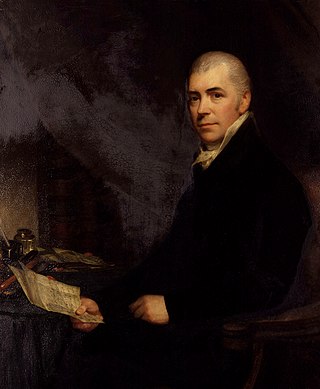
Sir Henry Halford, 1st Baronet, GCH, born Henry Vaughan, was president of the Royal College of Physicians for 24 years. As the royal and society physician, he was physician extraordinary to King George III from 1793 to 1820, then as physician in ordinary to his three successors – George IV, William IV and the young Victoria. He also served other members of the royal family until his death.
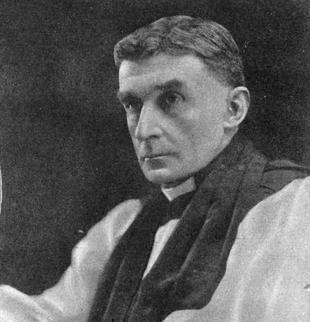
Albert Augustus David was an Anglican bishop and schoolmaster.
Sir John Vaughan PC was an English judge.

Arthur James Mason was an English clergyman, theologian and classical scholar. He was Lady Margaret's Professor of Divinity, Master of Pembroke College, Cambridge, and Vice-Chancellor of the University of Cambridge.
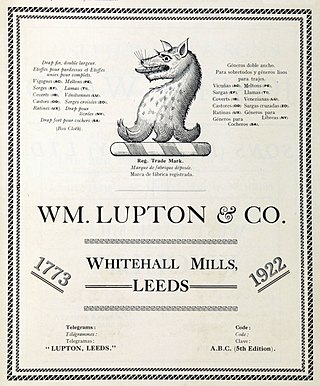
The Lupton family in Yorkshire achieved prominence in ecclesiastical and academic circles in England in the Tudor era through the fame of Roger Lupton, provost of Eton College and chaplain to Henry VII and Henry VIII. By the Georgian era, the family was established as merchants and ministers in Leeds. Described in the city's archives as "landed gentry, a political and business dynasty", they had become successful woollen cloth merchants and manufacturers who flourished during the Industrial Revolution and traded throughout northern Europe, the Americas and Australia.
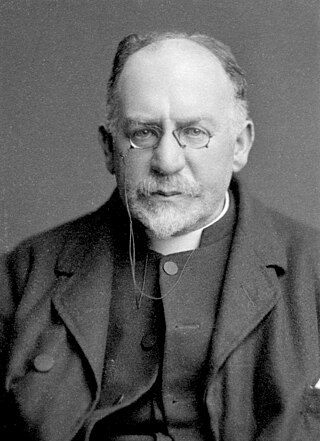
George Milligan DCL DD was a Scottish minister of the Church of Scotland who served as Moderator of the General Assembly of the Church of Scotland in 1923. He was professor of divinity and biblical criticism at the University of Glasgow.